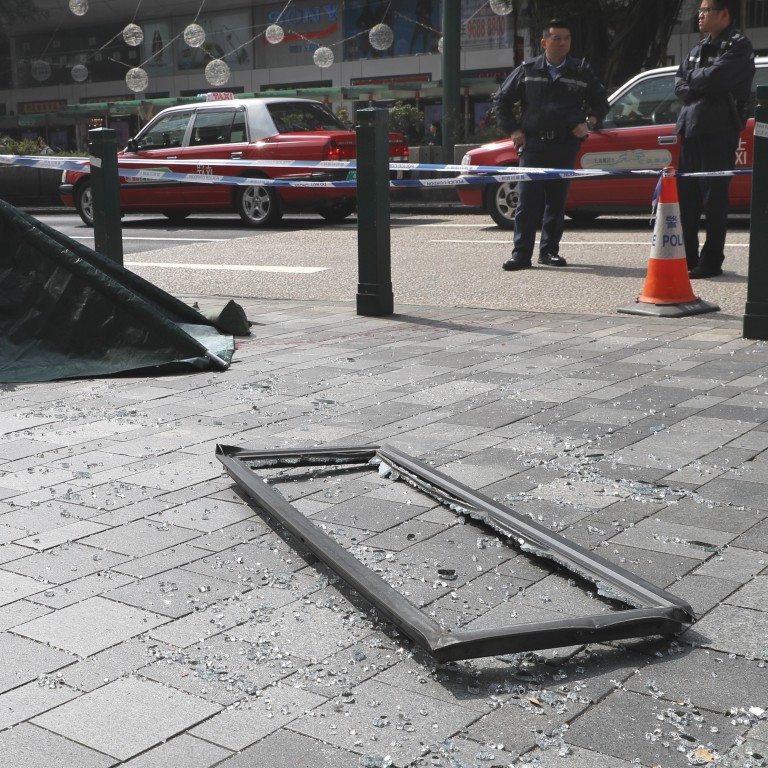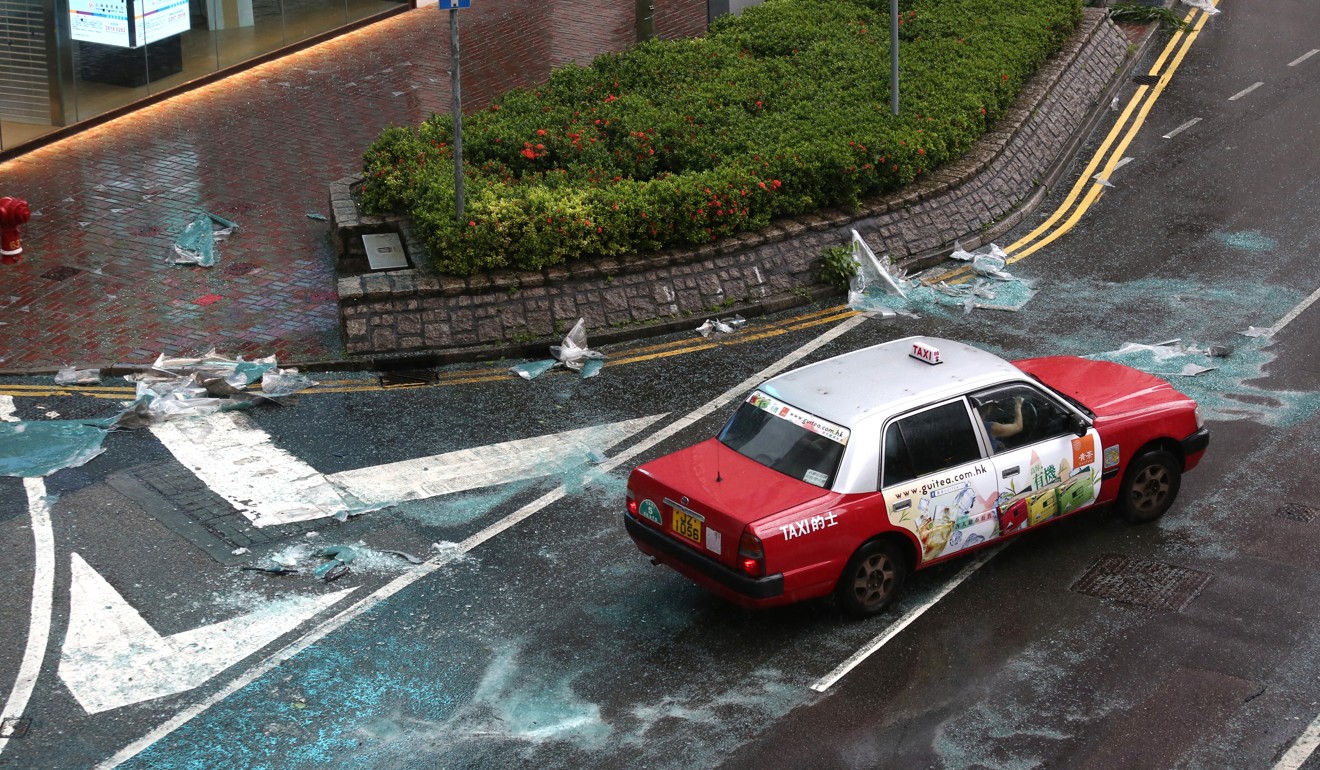
Will Hong Kong ever solve its killer-windows problem? Dense city, typhoons and loose enforcement a potent mix for falling panes
- Fatal case on bustling street in January calls to mind hair-raising phenomenon where besides looking before crossing roads, one may want to consider looking up
Just before 10.30am on January 21 this year, a tourist from Foshan, Guangdong province, was hit by a window that fell 16 floors from The Mira Hong Kong in the bustling shopping district of Tsim Sha Tsui.
The woman, 24, was walking with her boyfriend along main thoroughfare Nathan Road when the tragedy struck.
She was declared dead at Queen Elizabeth Hospital at 12.16pm, while her partner suffered minor injuries from the shattered glass.
Hotel cleaner arrested after pedestrian killed by falling window
In a city where the humidity can top 90 per cent, building structures and installations are prone to oxidation, which leads to corrosion of rivets and screws often used to secure aluminium window frames.

This week, City Weekend explores Hong Kong’s hair-raising killer window phenomenon and the state of buildings in a city where besides looking left and right before crossing the street, the more cautious may want to look up.
What are the laws in place?
In 2012, the government launched the Mandatory Window Inspection Scheme (MWIS) for privately owned buildings over 10 years of age and with three or more storeys.
Owners of such buildings can be issued a requirement to arrange for qualified personnel to inspect their windows and supervise any necessary repairs.
The scheme – spearheaded by Carrie Lam Cheng Yuet-ngor, now the city’s leader and at the time its secretary for development – arose after a rise in cases of windows falling.
After the first statutory notice, building windows must be examined again every five years.
An initial target of 5,800 privately owned buildings were selected by a committee of property managers and district councillors for investigation each year. In 2014, this figure dropped to 1,000.
Hotel owners’ group urges safety checks after falling window kills woman
But Secretary for Development Michael Wong Wai-lun recently estimated that since 2012, 59,000 of the half a million statutory notices sent to buildings across the city had been ignored. The Buildings Department has issued 3,700 fines of HK$1,500 each to non-compliant building owners.
As with the arrest of the hotel cleaner in The Mira incident, anyone who allows an object – window or otherwise – to fall from a building, causing danger or injury to those in or near a public space below, can be imprisoned for six months and is liable to a fine of HK$10,000, according to the Summary Offences Ordinance.
The hotel cleaner in that case was released on bail with instructions to report back to police. At the time, the Catering and Hotel Industries Employees General Union spoke up on her behalf, arguing that the arrest was unfair.

What were previous horror stories?
According to government records, there were five reported cases of windows falling between January 21 and 24 this year, including the one at The Mira.
One case happened at Fu Shin Estate in Tai Po, but fortunately no one was injured.
Just last month, two women, aged 65 and 69, were hit by a falling window from a seven-storey flat as they shopped on Pei Ho Street in Sham Shui Po. The younger woman was directly hit and knocked to the ground, but was not seriously injured. The other person sustained minor cuts from shards of flying glass.
Falling windows in Hong Kong: the why, what and how
The recent cases have added urgency over ensuring window safety in Hong Kong.
In 2005, there were at least 75 reported incidents of windows falling. This trend ultimately inspired authorities to pass the inspection scheme of 2012.

However, the city has seen little improvement since the MWIS was implemented. According to Wong, a window pane has fallen once every five days for the past three years.
Moreover, between 2016 and 2018, the Buildings Department received 216 reports of windows falling from private buildings. The department did not keep tabs on the casualties related to these incidents.
How effective is enforcement?
As stated in a March 2019 editorial by the Post: “Hotels often escape mandatory inspections of their windows because they are regarded as being better managed than other buildings and therefore not a priority.”
Since 2012, only 48 hotels have been ordered to inspect their windows, even though 230 fall under the MWIS criteria for mandatory inspection.

At the time of the Mira incident in January, at least five of Hong Kong’s hotels have not carried out inspection orders, according to Buildings Department records. Park Lane, V Hotel and Serviced Apartments, as well as Kings Hotel, and Tsim Sha Tsui’s Guangdong Hotel and Marco Polo Hotel, were found in January to have ignored notices issued as far back as 2013 .
At least 5 hotels have failed to comply with inspection orders, Post finds
With higher priority usually given to dilapidated residential buildings, The Mira, which opened in 1948 and was renovated in 2009, slipped past the committee in charge of serving inspection notices.
Wong had said: “Regular inspections and timely repairs are crucial. One should not wait until the buildings have become defective or dangerous for taking remedial actions”
The idea that has governed the inspection scheme is “prevention is better than cure”.
In the years since 2012, the Buildings Department tightened requirements for window inspectors. As of December 2018, those applying must have recognised practical experience as well as skill qualifications.
The government is also planning to begin prosecuting those responsible for the most egregious cases of non-compliance.
While the case on January 21 is still under investigation, the Mira told City Weekend that it has since complied with all government and police orders.

